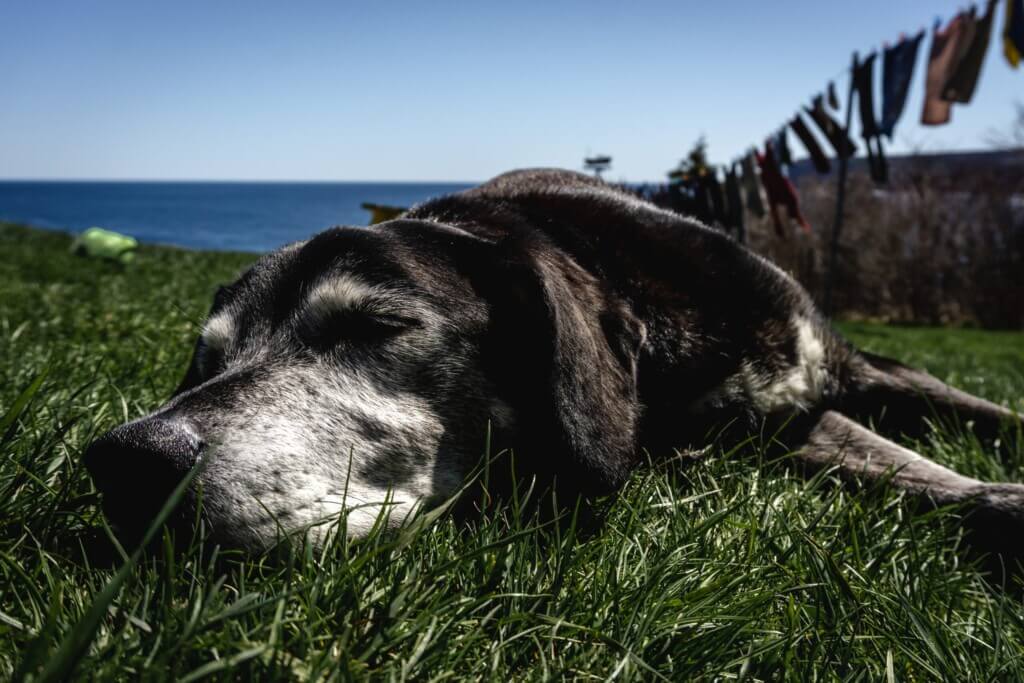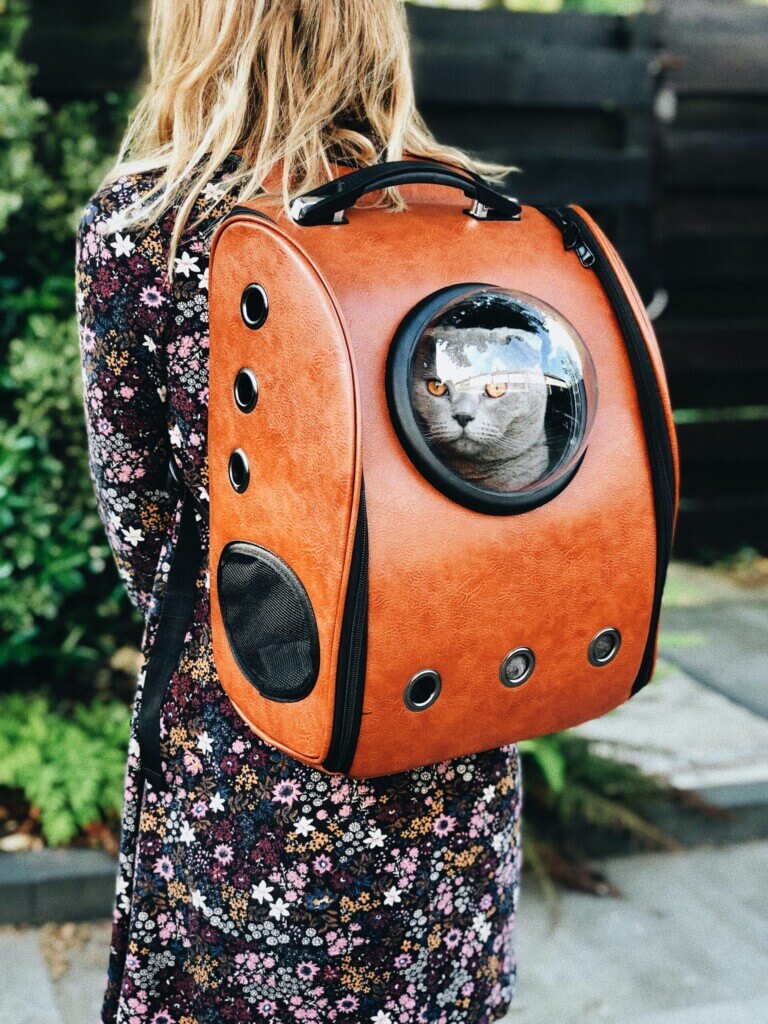For all you animal lovers out there, we think you’ll agree that there is nothing quite like traveling the globe in a VW Bus with your furry friend on board. It’s heart-warming to see all the lovely photos you share as part of the Buslifers community with your pets, exploring, adventuring, and, most importantly, having fun. So we know that pet care on the road is an important topic for you!
Traveling on the road with your pet is a wonderful experience but as all responsible pet owners know, caring for an animal is not always plain sailing. When you least expect it, your pet could become sick or injured, and it’s best to be prepared.
We have compiled the ultimate guide to pet care on the road for anyone out there thinking about hopping in their VW Bus with their pet. Have a read and, you’ll be riding off into the sunset in no time, for an adventure like no other while caring for your pet on the road.



Before you leave: Vet care abroad and pet insurance
Don’t leave your pet care on the road to chance. Ensuring you have pet insurance in place and a plan for locating a veterinary surgery is vital before you, and your pet set off on your Buslifer adventure.
Get started by checking out your current pet insurance plan to see if your pet is covered when traveling abroad. You might be able to include this as part of your policy. Or, if you need to purchase some additional insurance for your pet, it’s always worth shopping around for the best deal. For the worldwide leader in pet insurance, visit Petplan.
We would also highly recommend using a price comparison site and here are just a few sites to get you started.
UK pet insurance price comparison
Australian pet insurance price comparison
Columbian pet insurance price comparison
US pet insurance price comparison
If you’ve spent some time mapping out your road trip, it’s worth researching in advance recommended veterinary surgeries in the areas you are visiting.
For extra peace of mind, to ensure your pet’s health and happiness throughout your Buslife adventure, you may also want to consider signing up for an online vet advice service. There’s a wide range of affordable options, including sites such as PetCoach, PawSquad, and JustAnswer.
Onboard your VW Bus: Essential pet first aid kit
Just as you would for yourself, carrying a first aid kit designed for animals is the best way to ensure you are ready for any eventually while traveling with your pet.
The Blue Cross recommend including the following essentials in your pet first aid kit:
- Self-adhesive bandages
- conforming/open-weave bandages
- non-adhesive absorbent dressings
- surgical tape
- cotton wool
- sterile absorbent gauze
- scissors
- a towel
- buster collar
Other items that may come in useful include:
Pet first aid kits are readily available online, and you’ll find a wide range of affordable options, from all-in-one kits to compact travel packs. Some of our favorites including this Wild Barkers Cat and Dog First Aid Kit and this mini travel version.



On the road: Checking your pet for symptoms of an illness or injury
Pet owners know when something’s not quite right with their fluffy friend. But it’s not always so simple to work out what’s causing their discomfort.
Spotting symptoms of illness or injury early in your pet could prevent their condition from worsening and save you a lot of worries. Getting your pet to a vet sooner, if needed, could also save you some serious cash when it comes to costly vet bills!
Here are some typical symptoms to keep an eye out for and help you with pet care on the road.
- Sickness & Diarrhoea
- Refusing to eat
- Increased tiredness
- Swollen gums
- Excessive scratching & flaking skin
- Runny nose and eyes
- Excessive drinking
- Frequent or difficulty urinating
If you notice your pet experiencing any of these symptoms, they should be monitored. If they persist for longer than 24 hours, contact a vet
When your pet has been injured, they may also display one or more of these symptoms:
- Howling or growling
- Signs of aggression
- Excessive licking
- Lack of mobility
- Restlessness and changes in their usual eating and sleeping patterns
- Sudden trembling
- Increased panting



On the road: Treating your pet for an injury
Hopefully, nothing bad will ever happen to your much-loved furry friend. However, if your pet is injured while you’re on the road, here are a few easy-to-follow handling tips.
- Don’t assume your pet will never try to bite or scratch you. If your pet has been injured, they could lash out due to pain or fear.
- Calmly examine your pet to establish whether their injury is something you can treat yourself or if you need to take them to a vet.
- If you need to transport your pet, you may want to wrap them in a towel and ensure they are kept in a confined space to avoid the risk of further injury.
If your pet’s injury is minor, how you treat them will depend on their injury. We would recommend familiarising yourself with an essential pet first aid guide and keeping a copy onboard your VW Bus in case of an emergency. This free booklet can also be downloaded via the RSPCA.



What to do: Lost and stray pets
Finding a lost pet or a stray can be a distressing experience, particularly if you are on the road in an unfamiliar country. One thing to bear in mind is that there are countries worldwide where stray dogs and cats are prevalent. However, these simple tips could help you reunite a lost pet with its owner or help a stray in need.



Lost pets
- Is the animal wearing a collar? If yes, they are likely to be someone’s pet, and if there is an identity tag, great! You should have a phone number to ring. If not, check the vicinity to see if anyone can ask who may know the pet’s owner. Failing this, locate the nearest vets or animal warden.
- Many countries have sites dedicated to helping reunite owners with their lost pets. For example, LostFoundPets is the US national lost and found pet database, while PetsReunited helps owners in the UK. When trying to find the best site for the country you are visiting, search keywords, including ‘lost pet database,’ ‘missing pet,’ and include the relevant country name.
Strays
- If you encounter a stray dog or cat in a different country, although it is tempting to pet and feed them, this isn’t advised. Primarily because most will not have been vaccinated and may carry diseases, you will also encourage the animal to beg for scraps.
- There are animal charities around the world that support stray cats and dogs. If you find an animal that you believe to be suffering, you could look to contact them. For example, Animal Lefkada rescues animals in need on the Greek Island of Lefkada.
- You can help support stray animals in the country you are traveling to by donating or volunteering with a recognized animal charity.



Top buys: Keep your pet happy and healthy on the road
We Buslifers know how vital handy, portable gadgets are for life on the road. That’s why we’ve compiled a small selection of additional first aid essentials to help you with pet care on the road.
Wound care – An antimicrobial spray that will help to keep wounds clean and heal quickly.
Ear cleaner – An easy-to-use cleaning solution that helps reduce ear wax build-up and reduce the risk of infection.
Waterproof dog boots – Help protect your pet’s paws and allow wounds to heal quickly without infection.
Teeth cleaner – Easy to apply dental gel helps break down plaque, ensuring your pet’s oral hygiene on your travels.
Cooling pet vest – Keep your pet cool and avoid heatstroke with this washable jacket.
Flea and worming treatment – Stock up on flea and worming treatment to keep your pet covered throughout your trip.



We hope our guide to pet care on the road has been helpful. If you want even more tips on traveling with your pet, you will want to read our article, Bringing Your Dog on the road.
If you’re looking for plenty more content about life on the road, why not have a browse of our other stories? We have written about helpful topics, including How to Stay Hygienic on the Road!


